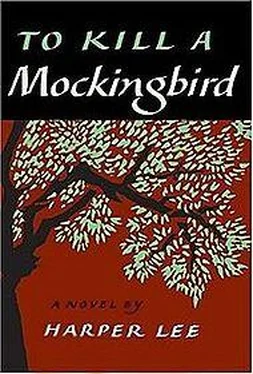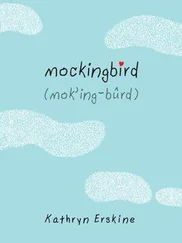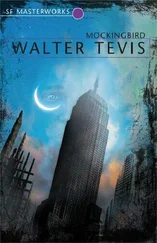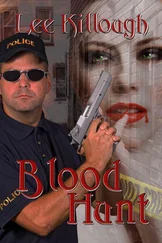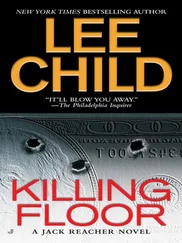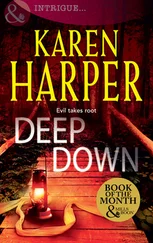Lee Harper - To Kill a Mockingbird
Здесь есть возможность читать онлайн «Lee Harper - To Kill a Mockingbird» весь текст электронной книги совершенно бесплатно (целиком полную версию без сокращений). В некоторых случаях можно слушать аудио, скачать через торрент в формате fb2 и присутствует краткое содержание. Жанр: Современная проза, на английском языке. Описание произведения, (предисловие) а так же отзывы посетителей доступны на портале библиотеки ЛибКат.
- Название:To Kill a Mockingbird
- Автор:
- Жанр:
- Год:неизвестен
- ISBN:нет данных
- Рейтинг книги:3 / 5. Голосов: 1
-
Избранное:Добавить в избранное
- Отзывы:
-
Ваша оценка:
- 60
- 1
- 2
- 3
- 4
- 5
To Kill a Mockingbird: краткое содержание, описание и аннотация
Предлагаем к чтению аннотацию, описание, краткое содержание или предисловие (зависит от того, что написал сам автор книги «To Kill a Mockingbird»). Если вы не нашли необходимую информацию о книге — напишите в комментариях, мы постараемся отыскать её.
To Kill a Mockingbird — читать онлайн бесплатно полную книгу (весь текст) целиком
Ниже представлен текст книги, разбитый по страницам. Система сохранения места последней прочитанной страницы, позволяет с удобством читать онлайн бесплатно книгу «To Kill a Mockingbird», без необходимости каждый раз заново искать на чём Вы остановились. Поставьте закладку, и сможете в любой момент перейти на страницу, на которой закончили чтение.
Интервал:
Закладка:
The driver of the wagon slowed down his mules, and a shrill-voiced woman called out: “He that cometh in vanity departeth in darkness!”
Miss Maudie answered: “A merry heart maketh a cheerful countenance!”
I guess that the foot-washers thought that the Devil was quoting Scripture for his own purposes, as the driver speeded his mules. Why they objected to Miss Maudie’s yard was a mystery, heightened in my mind because for someone who spent all the daylight hours outdoors, Miss Maudie’s command of Scripture was formidable.
“You goin’ to court this morning?” asked Jem. We had strolled over.
“I am not,” she said. “I have no business with the court this morning.”
“Aren’t you goin’ down to watch?” asked Dill.
“I am not. ‘t’s morbid, watching a poor devil on trial for his life. Look at all those folks, it’s like a Roman carnival.”
“They hafta try him in public, Miss Maudie,” I said. “Wouldn’t be right if they didn’t.”
“I’m quite aware of that,” she said. “Just because it’s public, I don’t have to go, do I?”
Miss Stephanie Crawford came by. She wore a hat and gloves. “Um, um, um,” she said. “Look at all those folks — you’d think William Jennings Bryan was speakin’.”
“And where are you going, Stephanie?” inquired Miss Maudie.
“To the Jitney Jungle.”
Miss Maudie said she’d never seen Miss Stephanie go to the Jitney Jungle in a hat in her life.
“Well,” said Miss Stephanie, “I thought I might just look in at the courthouse, to see what Atticus’s up to.”
“Better be careful he doesn’t hand you a subpoena.”
We asked Miss Maudie to elucidate: she said Miss Stephanie seemed to know so much about the case she might as well be called on to testify.
We held off until noon, when Atticus came home to dinner and said they’d spent the morning picking the jury. After dinner, we stopped by for Dill and went to town.
It was a gala occasion. There was no room at the public hitching rail for another animal, mules and wagons were parked under every available tree. The courthouse square was covered with picnic parties sitting on newspapers, washing down biscuit and syrup with warm milk from fruit jars. Some people were gnawing on cold chicken and cold fried pork chops. The more affluent chased their food with drugstore Coca-Cola in bulb-shaped soda glasses. Greasy-faced children popped-the-whip through the crowd, and babies lunched at their mothers’ breasts.
In a far corner of the square, the Negroes sat quietly in the sun, dining on sardines, crackers, and the more vivid flavors of Nehi Cola. Mr. Dolphus Raymond sat with them.
“Jem,” said Dill, “he’s drinkin’ out of a sack.”
Mr. Dolphus Raymond seemed to be so doing: two yellow drugstore straws ran from his mouth to the depths of a brown paper bag.
“Ain’t ever seen anybody do that,” murmured Dill.
“How does he keep what’s in it in it?”
Jem giggled. “He’s got a Co-Cola bottle full of whiskey in there. That’s so’s not to upset the ladies. You’ll see him sip it all afternoon, he’ll step out for a while and fill it back up.”
“Why’s he sittin’ with the colored folks?”
“Always does. He likes ‘em better’n he likes us, I reckon. Lives by himself way down near the county line. He’s got a colored woman and all sorts of mixed chillun. Show you some of ‘em if we see ‘em.”
“He doesn’t look like trash,” said Dill.
“He’s not, he owns all one side of the riverbank down there, and he’s from a real old family to boot.”
“Then why does he do like that?”
“That’s just his way,” said Jem. “They say he never got over his weddin’. He was supposed to marry one of the — the Spencer ladies, I think. They were gonna have a huge weddin’, but they didn’t — after the rehearsal the bride went upstairs and blew her head off. Shotgun. She pulled the trigger with her toes.”
“Did they ever know why?”
“No,” said Jem, “nobody ever knew quite why but Mr. Dolphus. They said it was because she found out about his colored woman, he reckoned he could keep her and get married too. He’s been sorta drunk ever since. You know, though, he’s real good to those chillun—”
“Jem,” I asked, “what’s a mixed child?”
“Half white, half colored. You’ve seen ‘em, Scout. You know that red-kinky-headed one that delivers for the drugstore. He’s half white. They’re real sad.”
“Sad, how come?”
“They don’t belong anywhere. Colored folks won’t have ‘em because they’re half white; white folks won’t have ‘em cause they’re colored, so they’re just in-betweens, don’t belong anywhere. But Mr. Dolphus, now, they say he’s shipped two of his up north. They don’t mind ‘em up north. Yonder’s one of ‘em.”
A small boy clutching a Negro woman’s hand walked toward us. He looked all Negro to me: he was rich chocolate with flaring nostrils and beautiful teeth. Sometimes he would skip happily, and the Negro woman tugged his hand to make him stop.
Jem waited until they passed us. “That’s one of the little ones,” he said.
“How can you tell?” asked Dill. “He looked black to me.”
“You can’t sometimes, not unless you know who they are. But he’s half Raymond, all right.”
“But how can you tell?” I asked.
“I told you, Scout, you just hafta know who they are.”
“Well how do you know we ain’t Negroes?”
“Uncle Jack Finch says we really don’t know. He says as far as he can trace back the Finches we ain’t, but for all he knows we mighta come straight out of Ethiopia durin’ the Old Testament.”
“Well if we came out durin’ the Old Testament it’s too long ago to matter.”
“That’s what I thought,” said Jem, “but around here once you have a drop of Negro blood, that makes you all black. Hey, look—”
Some invisible signal had made the lunchers on the square rise and scatter bits of newspaper, cellophane, and wrapping paper. Children came to mothers, babies were cradled on hips as men in sweat-stained hats collected their families and herded them through the courthouse doors. In the far corner of the square the Negroes and Mr. Dolphus Raymond stood up and dusted their breeches. There were few women and children among them, which seemed to dispel the holiday mood. They waited patiently at the doors behind the white families.
“Let’s go in,” said Dill.
“Naw, we better wait till they get in, Atticus might not like it if he sees us,” said Jem.
The Maycomb County courthouse was faintly reminiscent of Arlington in one respect: the concrete pillars supporting its south roof were too heavy for their light burden. The pillars were all that remained standing when the original courthouse burned in 1856. Another courthouse was built around them. It is better to say, built in spite of them. But for the south porch, the Maycomb County courthouse was early Victorian, presenting an unoffensive vista when seen from the north. From the other side, however, Greek revival columns clashed with a big nineteenth-century clock tower housing a rusty unreliable instrument, a view indicating a people determined to preserve every physical scrap of the past.
To reach the courtroom, on the second floor, one passed sundry sunless county cubbyholes: the tax assessor, the tax collector, the county clerk, the county solicitor, the circuit clerk, the judge of probate lived in cool dim hutches that smelled of decaying record books mingled with old damp cement and stale urine. It was necessary to turn on the lights in the daytime; there was always a film of dust on the rough floorboards. The inhabitants of these offices were creatures of their environment: little gray-faced men, they seemed untouched by wind or sun.
Читать дальшеИнтервал:
Закладка:
Похожие книги на «To Kill a Mockingbird»
Представляем Вашему вниманию похожие книги на «To Kill a Mockingbird» списком для выбора. Мы отобрали схожую по названию и смыслу литературу в надежде предоставить читателям больше вариантов отыскать новые, интересные, ещё непрочитанные произведения.
Обсуждение, отзывы о книге «To Kill a Mockingbird» и просто собственные мнения читателей. Оставьте ваши комментарии, напишите, что Вы думаете о произведении, его смысле или главных героях. Укажите что конкретно понравилось, а что нет, и почему Вы так считаете.
